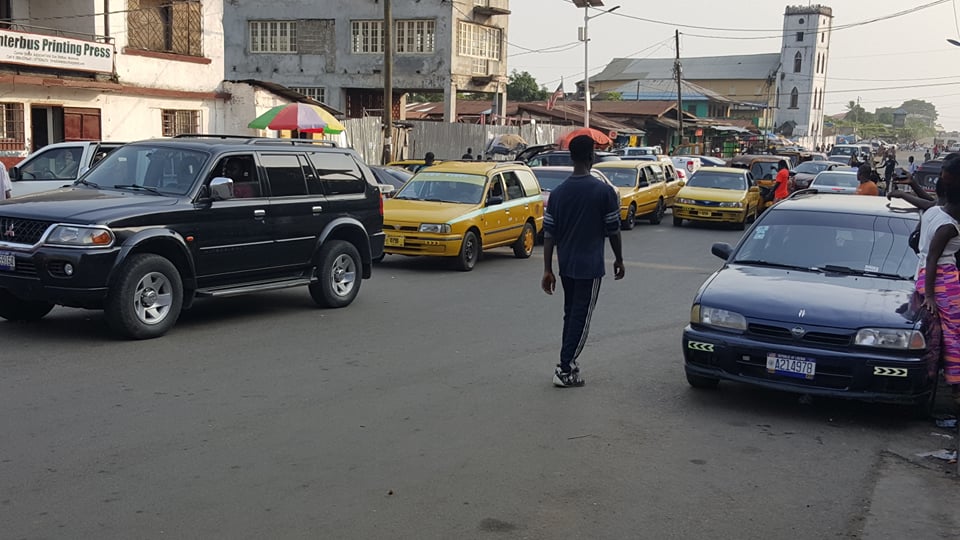-Commercial Drivers, Business People Decry Act
By Edwin M. Fayia, III, fayiaedwin@gmail.com
Reports gathered from several parts of Liberia continue to speak of an extensive extortion spree (bribes of all kinds) allegedly being carried out by security personnel assigned at the various official checkpoints; some not authorized.
Those worst affected are commercial drivers, motorcyclists, private vehicle owners and others plying the various highways.
According to some of the affected persons, several mini checkpoints are set up by security guards representing various agencies under the disguise of verifying documents of all kinds.
The practice is continuing unabated, some drivers claim, despite repeated warnings and threats of suspension by central authorities of both security agencies.
Some aid agencies and United Nations personnel are among vehicle operators complaining about extortion by Liberia’s security agents stationed on the roads and demanding money in order to ensure quick passage.
A regular commercial driver on the Gbarnga – Monrovia highway, Solomon B. Allen, told this the News Public Trust last week that the collection of money from motorists by security agents is a common phenomenon done each day affects for each economic trip. He said the action has become so grave, is calling for urgent intervention by authorities of the Liberia National Police to end it.
He said the pause to “highway corruption” will avert an imminent “battle” between police and commercial divers on the highway.
“We are indeed fed up with these countless collections of money by security people on our highways. Some urgent steps must be taken now before it is too late,” Allen warned.
The extortion of money on the highways has resulted to hike in transport fare by commercial drivers to make up for the money they had lost to police officers stationed on the high way.
Another commercial driver, who transports mainly charcoal, Daniel H. Sackie, said collection of money for various reasons on the Kakata/Monrovia highway has become so chronic that drivers have now tacitly become “pay masters” for guards at the multiple checkpoints.
Sackie explained that special budgetary allotment is normally made by them for police officers and other security agents, which would enable commercial vehicle operators to successfully navigate through the numerous checkpoints and convey charcoal to the Monrovia markets using that highway.
Back in Monrovia, Liberia’s commercial capital, bribery by commercial vehicle operators, with outdated (expired) driving papers, has been observed. The bribery is to prevent impoundment of their vehicles by the police officers who do not report the money to be put into Government’s revenue.
When confronted on claims that police officers were extorting money from commercial drivers, Police Spokesman Moses Carter said, via mobile phone, “I can unofficially say that most of those instances are attributed to over loading, lack of relevant vehicle registration and insurance documents.”
Spokesman Carter also pointed out that some of the complaints from commercial drivers and public service transport providers have not been officially communicated to the LNP leadership, and that once such grievances reach the desk of the LNP leadership, “the necessary actions will be instituted against police officers involved without delay.”
Carter also explained that vehicles conveying the charcoal to Monrovia and its environs are often accompanied by police officers in the front cabin or somewhere within.
“I must state here that many compromises sometimes take place on our highways based on mutual understanding between police officers and those charcoal vehicle drivers,” Spokesman Carter added.

